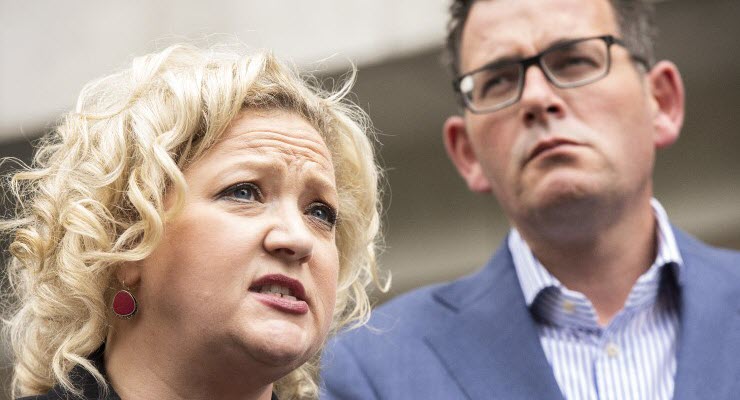
Changes to a botched bill in Victoria gagging sexual assault survivors from publicly identifying themselves come into effect today.
But one element — around tailored consent — leaves media outlets in the lurch: journalists must get written consent from the survivor before writing about them.
Although it gives survivors control over how their story is written, it creates an issue for vocal survivor advocates sharing their story.
How did this happen?
Changes to the bill attempting to streamline the process for victim-survivors who wish to speak out were implemented in February.
But the bill required survivors whose abuser had been found guilty to apply for a court order to self-identify — a process which could cost more than $10,000. Those who broke the law could face up to four months in jail or fines of thousands of dollars.
If the survivor had never filed a police complaint, their identity could be revealed without their permission.
Advocacy groups began sending letters to the Victorian government, but nothing changed: state Attorney-General Jill Hennessy refused to acknowledge problems with the law for several months.
In August the LetUsSpeak campaign kicked off with more than 200,000 people signing a petition for law reform. Hennessy quickly announced there would be “urgent law reform”.
What about tailored consent?
Marque Lawyers partner, Crikey contributor and LetUsSpeak campaigner Michael Bradley says outlets could face hefty fines under the amended law.
“The bill amendment means the survivor’s consent will need to be contained for each publication,” he said. “There’s no facility for generalised consent.”
The fact that it is called “Jaime’s law” — Jaime is a survivor of childhood abuse — also raises questions for reporting.
It also means outlets may have to go back to survivors to obtain consent for already published stories.
“If survivors give consent to one publication and then other publisher names them, then they could be prosecuted,” Bradley said.
This also applies to media syndicates, meaning if a story is republished under agreement by a platform with a different name, consent will again have to be given.
Publishers could face four months in jail and a fine of $8261 for breaking the law.
This has been flagged and will be considered during the next round of consultation in 2021. Bradley hopes there will be an option for survivors to give consent for their names to be used generally.
A leap in the right direction
Campaigner and freelance journalist Nina Funnell told Crikey the bill amendments were an important change.
“The provision around tailored consent was pushed for by survivors,” she said. “It will give survivors more power to control their narrative than ever before.”
It also means some outlets won’t be able to publish a name and trawl through someone’s social media for photos without express permission.
“It will allow more survivors to go on the record because they can control what details about them are published,” Funnell said.
But blanket consent was also needed so survivors who were frequently featured in the media didn’t need to be hassled by 30 journalists after each public appearance.
Funnel said the campaigning had been “gruelling, exhausting tedious and tearful”.
“While we’re glad they’ve had their names and voices restored it should never have been taken from them in the first place,” she said.
“In future, politicians must consult and listen to survivors before they meddle with legislation this sensitive.”








Crikey is committed to hosting lively discussions. Help us keep the conversation useful, interesting and welcoming. We aim to publish comments quickly in the interest of promoting robust conversation, but we’re a small team and we deploy filters to protect against legal risk. Occasionally your comment may be held up while we review, but we’re working as fast as we can to keep the conversation rolling.
The Crikey comment section is members-only content. Please subscribe to leave a comment.
The Crikey comment section is members-only content. Please login to leave a comment.